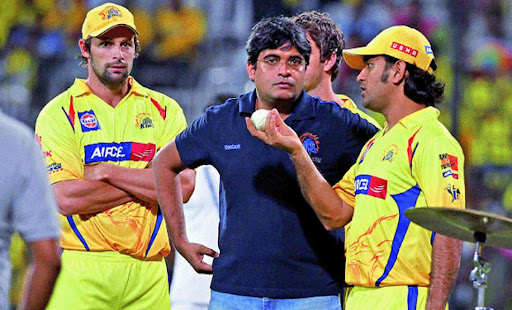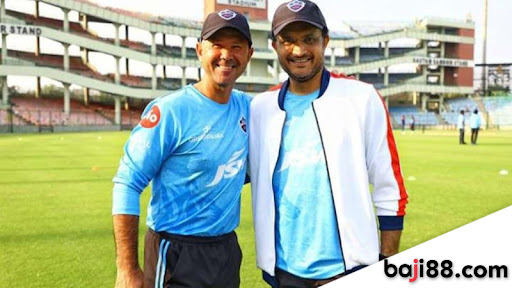Cricket has been a source of passion, pride, and entertainment for millions of fans worldwide. However, it has had its share of dark moments, including the infamous IPL match-fixing scandal of 2013, which sent shockwaves through the cricketing world. In this article, we delve into the impact of the IPL match-fixing scandal on cricket’s integrity and the sport’s ongoing battle against corruption.
The 2013 IPL Spot-Fixing Scandal
The 2013 IPL spot-fixing scandal cast a long shadow over Indian cricket. Three Rajasthan Royals players, Ajit Chandila, S Sreesanth, and Ankit Chavan, were at the center of the controversy. They were accused of participating in spot-fixing, a form of match manipulation where players agree to perform specific actions during a match in exchange for money. Their actions tarnished the reputation of not only their respective careers but also the game itself.
The scandal sent shockwaves through the Board of Control for Cricket in India (BCCI) and led to sweeping actions to address the issue. Notably, Rajasthan Royals and Chennai Super Kings, two of the most prominent IPL franchises, were suspended for two years due to the involvement of their officials in alleged betting activities. The fallout from the scandal was significant, raising questions about cricket’s integrity and the need for stringent measures to combat corruption.
The Reduction of Ajit Chandila’s Ban
In a surprising turn of events, Ajit Chandila’s life ban, initially handed down by the BCCI, was recently reduced to seven years. This decision has rekindled discussions surrounding the severity of punishments for players involved in match-fixing and spot-fixing. It’s important to note that this change has sparked debate within the cricketing community, with opinions divided on whether such reductions are warranted.
The reduction of Chandila’s ban serves as a reminder of the ongoing battle to maintain cricket’s integrity. It raises questions about the effectiveness of punishments as deterrents for players who may consider indulging in corrupt activities. It also underscores the need for stringent measures to safeguard the sport from the influence of match-fixing and spot-fixing.
The Challenge of Maintaining Cricket’s Integrity
Cricket has come a long way in its efforts to combat match-fixing and corruption. The establishment of the Anti-Corruption Units (ACUs) by various cricket boards, including the BCCI, signifies a commitment to protect the integrity of the sport. These units have worked diligently to educate players, officials, and stakeholders about the dangers of corruption and how to report suspicious activities.
However, match-fixing and corruption are persistent issues that evolve alongside technological advancements. The lucrative nature of betting on cricket, particularly in India, has made it a prime target for those seeking to manipulate the game. The dark underbelly of illegal betting remains a significant challenge, with vast sums of money at stake.
The 2023 Netflix documentary “Caught Out: Crime. Corruption. Cricket.” and the book “A Cop in Cricket” by former Delhi police commissioner Neeraj Kumar shed light on the scale of the problem and the difficulties faced by those fighting against corruption. The documentary highlights the reluctance of cricketers to speak out, a phenomenon referred to as ‘Omerta,’ reminiscent of the Mafia’s code of silence.
Neeraj Kumar’s experiences as the head of the BCCI’s Anti-Corruption Unit revealed a level of indifference towards the issue within the cricketing establishment. This indifference raised concerns about the commitment to eradicating corruption from the sport and protecting its integrity.
A Persistent Challenge
Despite the systemic checks and balances in place, match-fixing and corruption in cricket remain a persistent challenge. The match-fixing virus adapts to new opportunities and continues to pose a threat to the game. With technological advancements and the proliferation of betting websites and smartphones, the battle against corruption must evolve.
India’s love for cricket is undeniable, and the allure of betting on the game is a significant driver of corruption. While top players earn substantial incomes, corruption continues to persist at lower levels of the sport. Recent bans on players from Afghanistan and the UAE are evidence that the battle is far from over.
Cricket has endured these challenges, largely because of its deep-rooted connection with fans in India. While the IPL match-fixing scandal left some disillusioned, the majority of fans continue to embrace the sport with passion and enthusiasm.
The IPL match-fixing scandal of 2013 had a profound impact on cricket’s integrity. While significant measures have been put in place to combat corruption, the battle continues. Match-fixing remains a persistent issue that evolves with technological advancements. Cricket’s connection with fans in India remains strong, ensuring the sport endures despite the challenges it faces in maintaining its integrity.





